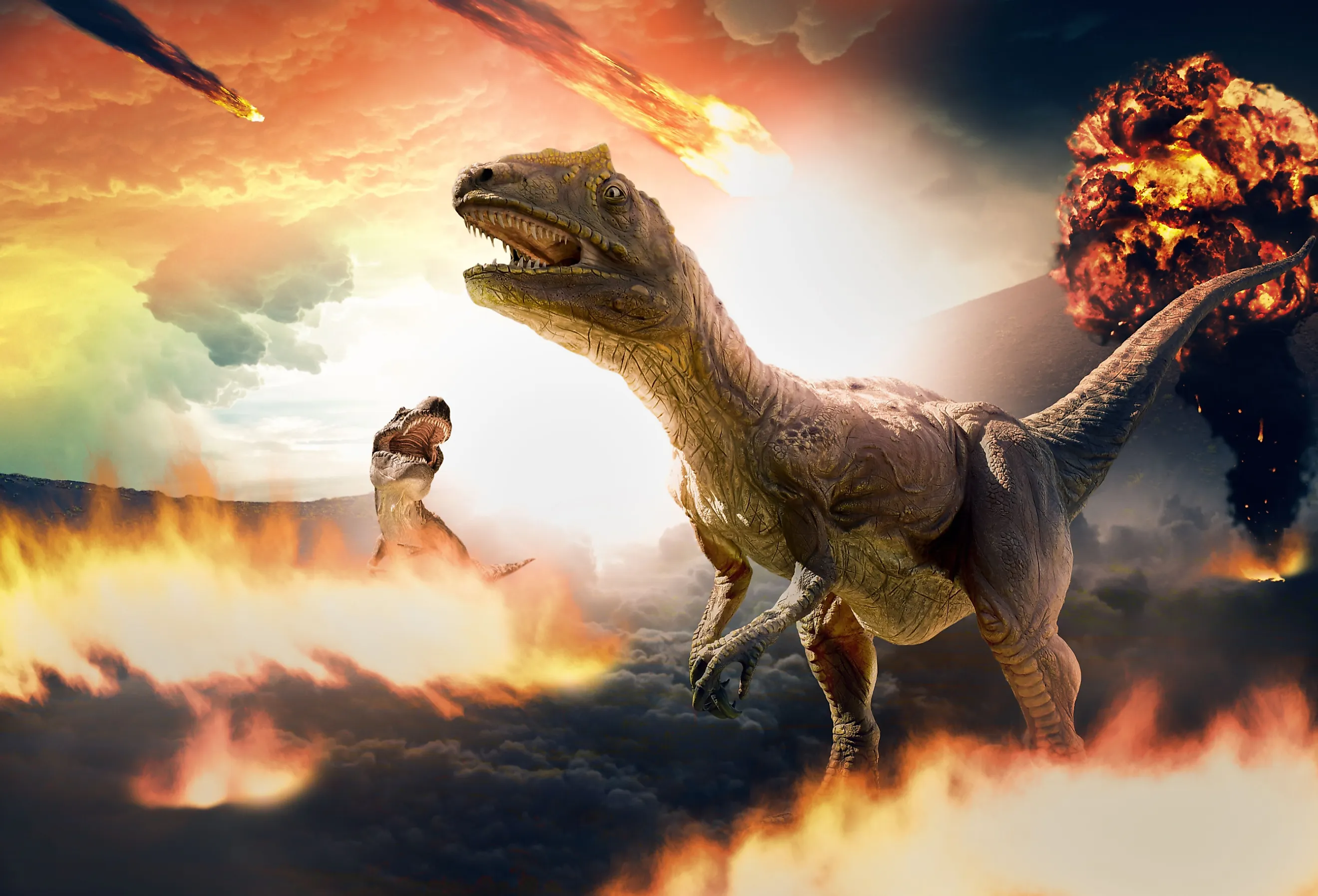
Extinction events have been a fascinating subject of study for biologists and paleontologists alike. These cataclysmic events have shaped the history of life on Earth, wiping out entire species and allowing new ones to take their place. From mass volcanic eruptions to asteroid impacts, extinction events have had profound effects on the composition and diversity of our planet’s ecosystems.
In this article, we will explore 12 mind-blowing facts about extinction events that will leave you astounded. From the largest mass extinction in Earth’s history to the remarkable resilience of certain species, these facts highlight the dramatic and transformative nature of these events. Whether you’re a biology enthusiast or simply curious about the wonders of the natural world, prepare to be amazed by these fascinating facts about the cycles of life and death that have shaped our planet throughout history.
Key Takeaways:
- Earth has experienced major extinction events throughout history, wiping out many species. Human activities are now causing a sixth mass extinction, threatening the diversity of life on our planet.
- Extinction events have shaped evolution, but also led to the rise of new species. Understanding past extinctions helps us protect biodiversity and work towards a sustainable future.
Mass extinctions have occurred throughout Earth’s history.
Throughout millions of years, the planet has experienced several major extinction events, where a significant number of species have vanished.
The most famous extinction event is the Cretaceous-Paleogene extinction.
About 66 million years ago, this event wiped out the dinosaurs and opened the door for the rise of mammals.
The Permian-Triassic extinction event was the most devastating.
Occurred approximately 252 million years ago, it is known as the “Great Dying” as it resulted in the loss of about 96% of all marine species and 70% of terrestrial vertebrates.
Extinction events can be caused by various factors.
These include asteroid impacts, volcanic eruptions, climate change, and even human activities.
The sixth mass extinction is happening right now.
Scientists believe that we are currently undergoing a mass extinction event due to human-induced factors such as habitat destruction, pollution, and climate change.
The rate of current extinctions is much higher than the average background rate.
It is estimated that species are going extinct at a rate 1,000 to 10,000 times higher than the natural extinction rate.
The loss of keystone species can trigger cascading effects.
When a keystone species goes extinct, it can disrupt the entire ecosystem and lead to the extinction of other dependent species.
Extinction events have shaped the course of evolution.
After each major extinction event, new species evolved to fill the ecological niches left vacant by the extinct organisms.
Some species have survived multiple extinction events.
Examples include sharks, crocodiles, and horseshoe crabs, which have managed to endure and adapt through multiple mass extinctions.
The effects of extinction events can last for millions of years.
It takes a long time for ecosystems to recover and for biodiversity to reach pre-extinction levels.
Extinction events can lead to the evolution of new species.
When certain species go extinct, it opens up opportunities for new evolutionary pathways and the emergence of novel forms of life.
Understanding past extinction events helps us predict and prevent future ones.
Studying the causes and consequences of previous mass extinctions allows scientists to better understand how to mitigate the current biodiversity crisis.
Conclusion
The 12 Mind-Blowing Facts About Extinction Events highlight the fascinating and sometimes alarming realities of Earth’s history. By understanding the causes and effects of extinctions, we can strive to safeguard the diversity of life on our planet and work towards a more sustainable future.
Conclusion
In conclusion, extinction events are fascinating and crucial phenomena that have shaped the history of life on Earth. From mass extinctions to smaller-scale events, these occurrences have had profound impacts on biodiversity and the course of evolution. Understanding the causes and consequences of extinction events is vital for the preservation and conservation of Earth’s ecosystems.
Through the study of past extinction events, scientists can gain insights into the potential future threats to species and devise strategies to mitigate them. The interconnectedness of different species and their environments underscores the importance of mindful conservation practices and the preservation of biodiversity.
By learning from the past, we can work towards a more sustainable future and ensure the survival of the incredible diversity of life on our planet.
FAQs
1. What is an extinction event?
An extinction event refers to a significant and widespread loss of species on Earth within a relatively short geological period of time.
2. How do extinction events occur?
Extinction events can occur due to various factors such as climate change, volcanic eruptions, asteroid impacts, and human activities, which can disrupt ecosystems and lead to the decline or complete loss of species.
3. What are mass extinctions?
Mass extinctions refer to events in Earth’s history where a large percentage of species, both on land and in the oceans, become extinct in a relatively short span of time.
4. How many mass extinctions have occurred?
There have been five major mass extinctions in the past 500 million years, including the well-known extinction event that wiped out the dinosaurs.
5. Are extinction events a natural process?
Extinction events are a natural part of Earth’s history. However, the current rate of extinction is alarming, with many scientists considering it to be an ongoing mass extinction event caused by human activities.
6. Can humans prevent future extinction events?
While humans cannot prevent all extinction events, we can take steps to minimize our impact on the environment and work towards sustainable practices. Efforts such as habitat conservation, reducing pollution, and combating climate change can help to protect species and prevent future extinctions.
7. How long does it take for biodiversity to recover after an extinction event?
The recovery of biodiversity after an extinction event can vary depending on the severity of the event and the resilience of the affected ecosystems. It can take millions of years for biodiversity to fully recover.
Extinction events have shaped Earth's history, but their impact extends far beyond the loss of species. Ocean acidification, caused by increased carbon dioxide levels, threatens marine ecosystems. Volcanic eruptions can trigger global cooling and acid rain, while habitat destruction due to human activities accelerates species loss. Explore more fascinating facts about these interconnected phenomena and their consequences for our planet.
Was this page helpful?
Our commitment to delivering trustworthy and engaging content is at the heart of what we do. Each fact on our site is contributed by real users like you, bringing a wealth of diverse insights and information. To ensure the highest standards of accuracy and reliability, our dedicated editors meticulously review each submission. This process guarantees that the facts we share are not only fascinating but also credible. Trust in our commitment to quality and authenticity as you explore and learn with us.


